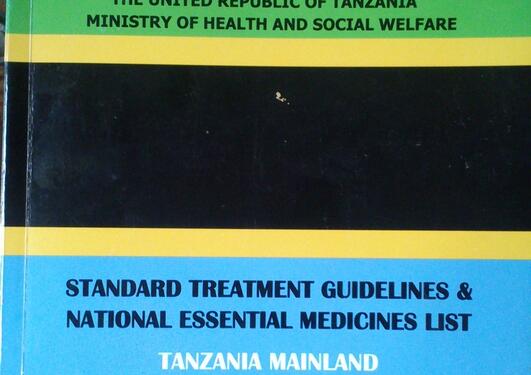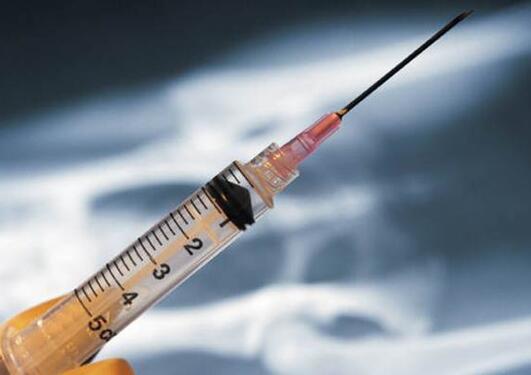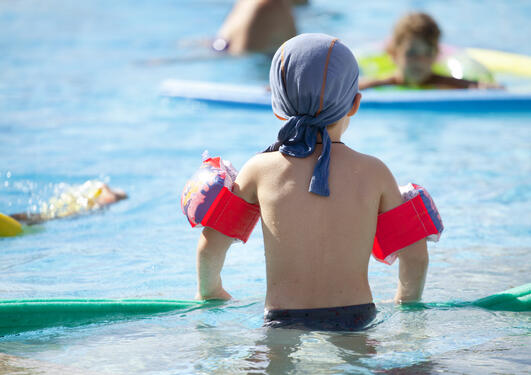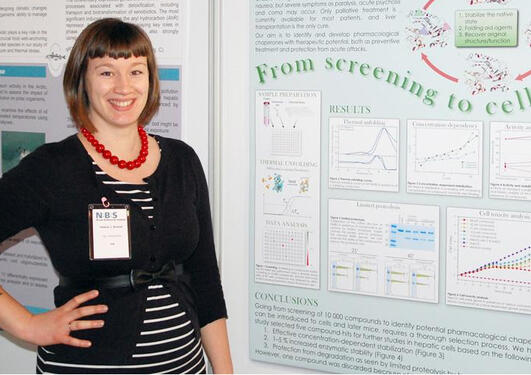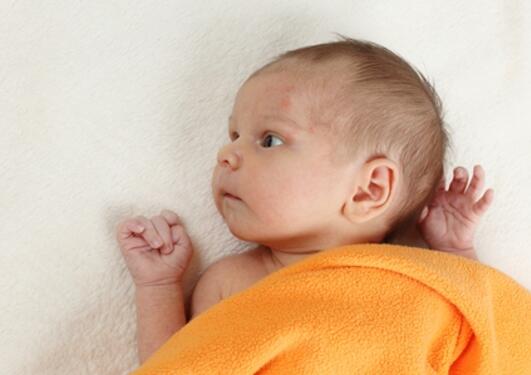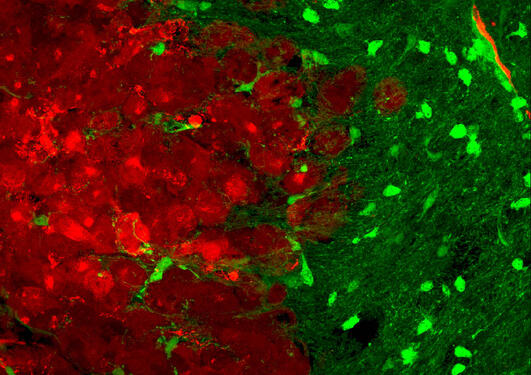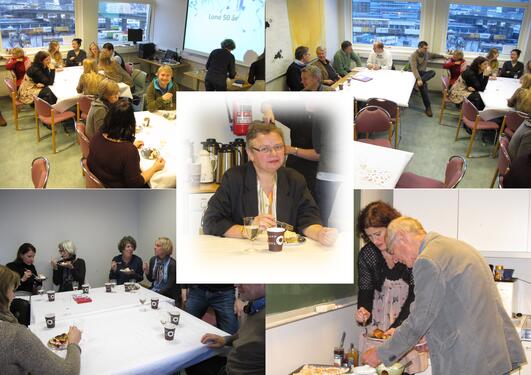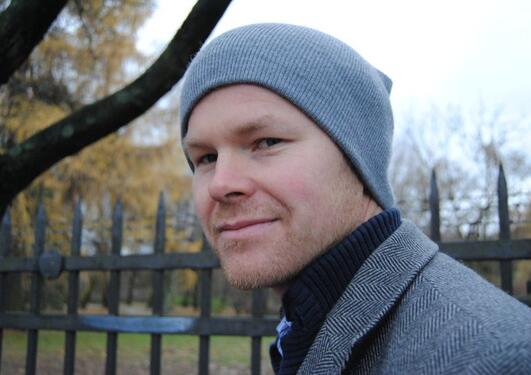News archive for Faculty of Medicine
Selection of essential medicines in Tanzania is currently based more on experience and subjective criteria than on evidence.
The results of a study comparing groups in Norway and Italy have shown that sun exposure in childhood and adolescence may lower the risk of later developing Multiple Sclerosis (MS).
We welcome Stefan Johansson as the new leader of Bergen Postgraduate School of Clinical Medical Research
New course for PhD candidates, with Allen Wilcox from the National Institute of Environmental Health Sciences (NIH), USA.
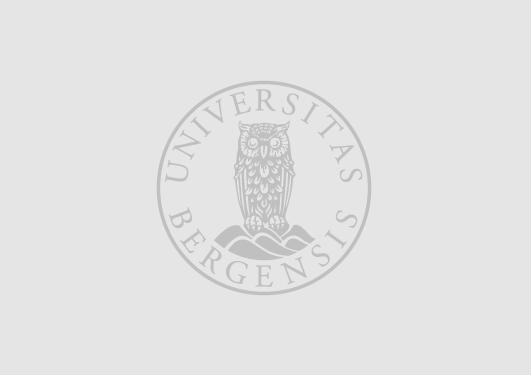
The event "Research presentations from 2013" was held in week 4 this year, in the BB-building.
PhD candidate Helene J. Bustad from Biorecognition won the poster prize at this year's NBS Contact Meeting at Røros.
In this recently published article, Line Iden Berge takes a closer look at depressive disorders in persons with type 1 diabetes.
Asthma and atopic dermatitis are among the most common chronic diseases in children. A new study looks at how preterm birth affects the risk for developing these diseases.
MIC is happy to announce the 10th course in confocal microscopy 4th -7th of March 2014.
Registration is now open and we encourage you to register as soon as possible as it tends to fill up quickly, deadline 10th of February. Max 18 participants.

The title of the talk is "Long-lived plasma cells in Sjögrens syndrome"
Associate Professor Lone Holst celebrated her 50th birthday on December 4th 2013. Both colleagues and students wanted to congratulate the “leading lady” on her anniversary.
From December 1st Reidun Kjome is engaged as Associate Professor in Research Group in Social Pharmacy.
Use of cranberry during pregnancy is not associated with negative pregnancy outcomes, Ph.D. candidate Kristine Heitmann concludes in her new paper. Simultaneously, she emphasizes the importance of treating detected urinary tract infections (UTIs) with antibiotics, as cranberry has not shown to be effective as treatment for UTIs.
Reidun will present "Phenotype of Epac1-deficient mice"
Håvard Trønnes and co-authors have published the report ""The association of preterm birth with severe asthma and atopic dermatitis; a national cohort study" i Pediatric Allergy and Immunology. The study reports that preterm birth is associated with an increased risk of asthma, but a decreased risk of atopic dermatitis.
In late November 2013, the coordinators from Makerere University and UiB met in Bergen to kick-start the process towards a new frame agreement.
Pages
- January 2026 (4)
- December 2025 (5)
- November 2025 (4)
- October 2025 (3)
- September 2025 (3)
- August 2025 (2)
- July 2025 (1)
- June 2025 (14)
- May 2025 (8)
- April 2025 (8)
- March 2025 (15)
- February 2025 (10)
- January 2025 (4)
- December 2024 (13)
- November 2024 (10)
- October 2024 (19)
- September 2024 (6)
- August 2024 (6)
- July 2024 (3)
- June 2024 (24)
- May 2024 (9)
- April 2024 (4)
- March 2024 (3)
- February 2024 (8)
- January 2024 (9)
- December 2023 (12)
- November 2023 (11)
- October 2023 (17)
- September 2023 (11)
- August 2023 (13)
- July 2023 (3)
- June 2023 (13)
- May 2023 (12)
- April 2023 (11)
- March 2023 (10)
- February 2023 (11)
- January 2023 (8)
- December 2022 (13)
- November 2022 (14)
- October 2022 (6)
- September 2022 (9)
- August 2022 (5)
- July 2022 (2)
- June 2022 (11)
- May 2022 (11)
- April 2022 (7)
- March 2022 (21)
- February 2022 (4)
- January 2022 (7)
- December 2021 (4)
- November 2021 (7)
- October 2021 (11)
- September 2021 (8)
- August 2021 (4)
- July 2021 (1)
- June 2021 (11)
- May 2021 (5)
- April 2021 (6)
- March 2021 (7)
- February 2021 (10)
- January 2021 (6)
- December 2020 (11)
- November 2020 (4)
- October 2020 (8)
- September 2020 (13)
- August 2020 (3)
- July 2020 (2)
- June 2020 (5)
- May 2020 (3)
- April 2020 (7)
- March 2020 (8)
- February 2020 (6)
- January 2020 (12)
- December 2019 (7)
- November 2019 (11)
- October 2019 (9)
- September 2019 (6)
- August 2019 (2)
- July 2019 (1)
- June 2019 (9)
- May 2019 (7)
- April 2019 (5)
- March 2019 (5)
- February 2019 (4)
- January 2019 (10)
- December 2018 (7)
- November 2018 (13)
- October 2018 (11)
- September 2018 (7)
- August 2018 (7)
- July 2018 (1)
- June 2018 (9)
- May 2018 (7)
- April 2018 (5)
- March 2018 (14)
- February 2018 (3)
- January 2018 (2)
- December 2017 (5)
- November 2017 (5)
- October 2017 (6)
- September 2017 (8)
- August 2017 (2)
- June 2017 (7)
- May 2017 (4)
- April 2017 (7)
- March 2017 (5)
- February 2017 (1)
- January 2017 (8)
- December 2016 (8)
- November 2016 (8)
- October 2016 (9)
- September 2016 (9)
- August 2016 (3)
- July 2016 (2)
- June 2016 (8)
- May 2016 (4)
- April 2016 (7)
- March 2016 (4)
- February 2016 (6)
- January 2016 (9)
- December 2015 (4)
- November 2015 (7)
- October 2015 (18)
- September 2015 (9)
- August 2015 (6)
- July 2015 (2)
- June 2015 (13)
- May 2015 (7)
- April 2015 (8)
- March 2015 (5)
- February 2015 (11)
- January 2015 (15)
- December 2014 (6)
- November 2014 (7)
- October 2014 (11)
- September 2014 (12)
- August 2014 (5)
- July 2014 (1)
- June 2014 (5)
- May 2014 (2)
- April 2014 (4)
- March 2014 (6)
- February 2014 (8)
- January 2014 (6)
- December 2013 (10)
- November 2013 (7)
- October 2013 (8)
- September 2013 (5)
- July 2013 (3)
- June 2013 (3)
- May 2013 (2)
- April 2013 (1)
- March 2013 (2)
- February 2013 (1)
- January 2013 (1)
- December 2012 (2)
- November 2012 (2)
- October 2012 (5)
- September 2012 (2)
- August 2012 (2)
- July 2012 (1)
- June 2012 (1)
- May 2012 (3)
- April 2012 (2)
- March 2012 (7)
- February 2012 (5)
- January 2012 (2)
- November 2011 (6)
- October 2011 (5)
- September 2011 (1)
- August 2011 (1)
- July 2011 (1)
- June 2011 (6)
- May 2011 (1)
- April 2011 (4)
- March 2011 (2)
- February 2011 (4)
- January 2011 (3)
- December 2010 (1)
- November 2010 (4)
- October 2010 (6)
- September 2010 (4)
- June 2010 (3)
- April 2010 (3)
- March 2010 (3)
- February 2010 (1)
- January 2010 (4)
- December 2009 (3)
- November 2009 (1)
- October 2009 (3)
- September 2009 (1)
- July 2009 (2)
- May 2009 (1)
- April 2009 (2)
- February 2009 (1)
- January 2009 (2)
